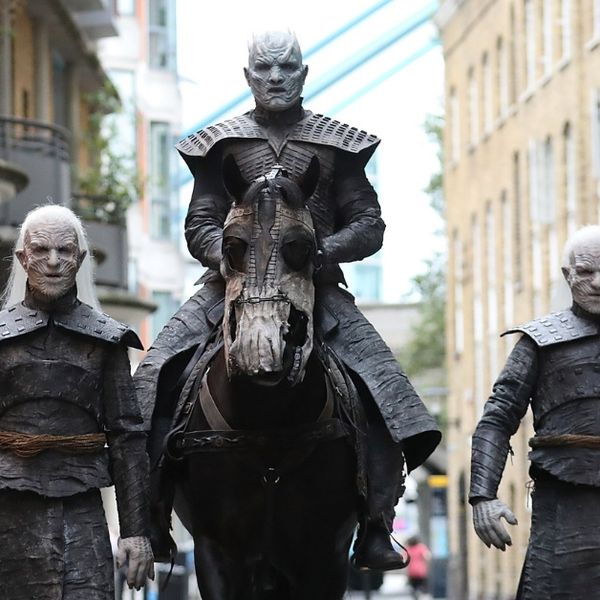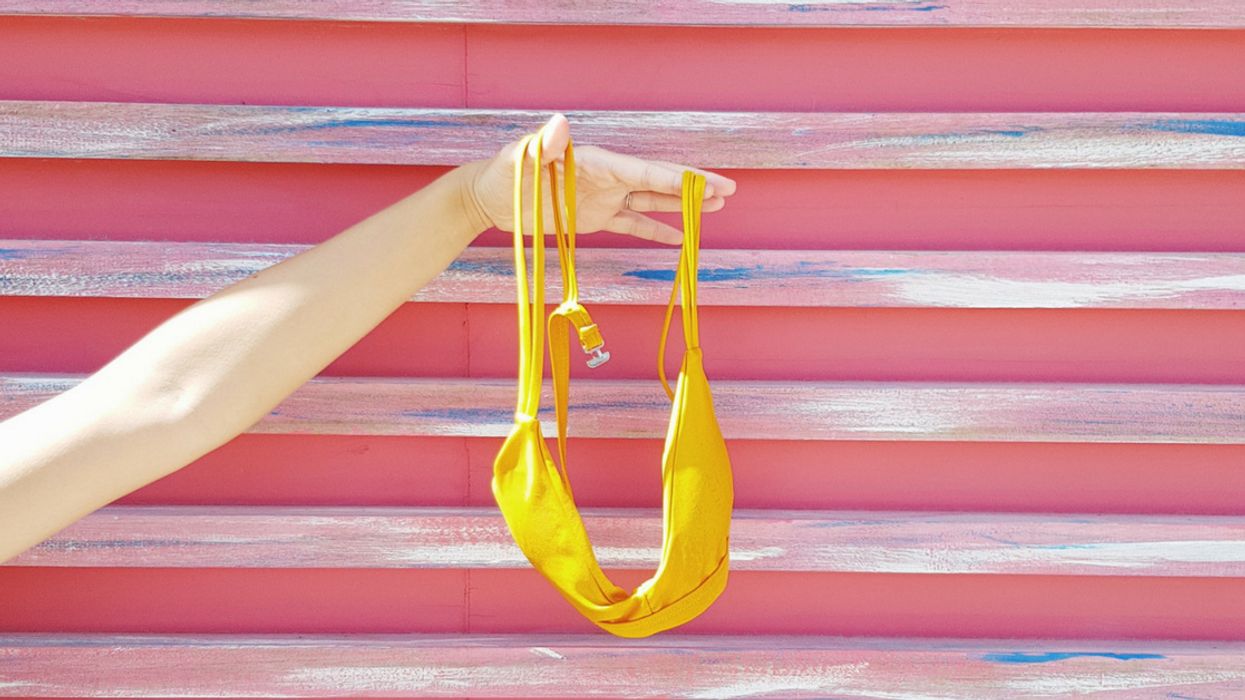July, 2001, LOS ANGELES - Tom Brokaw called them the "greatest generation" -- the men and women who served in the U.S. military during World War II. They fought against the forces of fascism defending the ideals of our democracy. We as Americans are deeply indebted to that generation.
I have a profoundly special debt to an extraordinary collection of men and women of that group of remarkable Americans. They are the Japanese Americans of the World War II generation.
Two events occurred last month on both coasts of this country that underscored the importance of my debt.
In Los Angeles, we commemorated the second year of the dedication of the "Go For Broke" Memorial.
This giant black granite cylinder, angled toward the southern sun, has the names of all Japanese Americans who served in the U.S. military etched into it. The "Go For Broke" name of the memorial comes from the motto of the all Japanese American unit, the 442nd Regimental Combat Team. "Go For Broke" was their battle cry. They went "for broke" as they fought on the battlefields of Italy. They faced the fierce resistance of the Nazis in the Rhineland campaign in France and went "for broke." Their "Go for broke" determination helped crack the Gothic Line in the mountains of Apennines. The 442nd suffered the highest casualty rate and was the most decorated unit in military history. They gave it their all. This "Go For Broke" monument is also a tribute to all Japanese Americans who served in the U.S. armed forces -- in the Military Intelligence Service, in the 100th Infantry Battalion as well as with the 442nd. They are all amazing American heroes.
What makes their gallantry so extraordinary is that they served despite initially being classified as "enemy non aliens" by their own government simply because they "looked like the enemy." What makes them so amazing is that they wore the same uniform as that worn by the soldiers guarding over their families incarcerated behind the barbed wires of American concentration camps back in the U.S. What makes my debt to them so profound is that their valor under these incredible circumstances transformed America for me and my generation. These men and women unquestionably added another dimension to the meaning of Americanism. President Harry Truman, greeting them on the White House grounds on their return to the U.S. stated, "You not only fought the enemy but you fought prejudice -- and you won."
After the commemoration ceremony of the "Go For Broke" Memorial, I chatted with the veterans, proudly wearing their Veterans of Foreign Wars caps. Many were now unsteady in their steps. A few were in wheelchairs. Their thin and reedy voices had few words. They were modest in receiving our gratitude. The passage of time had altered the robust soldiers they once were. But I could see their pride beaming from their faces.
What they did over half a century ago had transformed this nation. Because of their incredible gallantry, their immigrant parents could, for the first time, become naturalized American citizens; their sons and daughters today are able to rise as far as their abilities could take them; live wherever they could afford to live and participate fully in the life of America. What they did on the battlefields of World War II gave substance to the campaign to win redress for Japanese Americans for their incarceration during that war. They indisputably made this nation a better democracy for all Americans. They did this with their courage, their blood -- and the lives of their buddies. The gratitude we felt was as big and as solid as the great granite memorial that stood in front of us.
I walked up to the monument and found the name of the U.S. Senator from Hawaii, Daniel Inouye.
 He left his right arm on a bloody battleground in Italy. Last year, I attended the White House ceremony where, together with 21 others, he received a much belated Medal of Honor from President Bill Clinton for his heroism of over 50 years ago. Also on the monument I found the name of my mother's late cousin, Kay Kashiwabara. I touched their names with my fingertips and felt the grainy earthiness of the engraving. I stepped back to view the whole massive expanse of names etched onto the granite -- hundreds and hundreds of Japanese American names. Some died in battle. Some carried their wounds of battle throughout their lives. All served as Americans under the most incredible of circumstances. Staring at all those names, I whispered a silent "thank you."
He left his right arm on a bloody battleground in Italy. Last year, I attended the White House ceremony where, together with 21 others, he received a much belated Medal of Honor from President Bill Clinton for his heroism of over 50 years ago. Also on the monument I found the name of my mother's late cousin, Kay Kashiwabara. I touched their names with my fingertips and felt the grainy earthiness of the engraving. I stepped back to view the whole massive expanse of names etched onto the granite -- hundreds and hundreds of Japanese American names. Some died in battle. Some carried their wounds of battle throughout their lives. All served as Americans under the most incredible of circumstances. Staring at all those names, I whispered a silent "thank you."
The other event happened in our capitol, Washington, D.C. It was the commemoration of another monument to Japanese Americans, the National Japanese American Memorial. It is located on a triangular plaza just north of the Capitol. I could not be there in person for this ceremony, but I most certainly was there in spirit.
The granite wall of this memorial bears, not only the names of those Japanese American soldiers who perished in battle, but, as well, the names of all ten U.S. concentration camps scattered throughout the country from California to Arkansas where Japanese Americans were incarcerated during the war. The wall also carries quotations from distinguished Japanese Americans such as Senator Inouye, Cabinet Secretary Norman Mineta, and Congressman Robert Matsui.
The Memorial also holds a quote from the controversial wartime Executive Secretary of the Japanese American Citizens League, Mike Masaoka.
 His is a stirringly patriotic quote. In part, it reads, "I am proud that I am an American citizen of Japanese ancestry, for my very background makes me appreciate more fully the wonderful advantages of this nation. I believe in her institutions, ideals and traditions; I glory in her heritage; I boast of her history; I trust in her future." He wrote this in 1940. It was a time of limited opportunities for minorities; educated Japanese Americans were working at fruit stands. It was a time of restrictive housing covenants that gave rise to the Little Tokyo and Japantown racial ghettos. And it was a time when the dark cloud of the internment of Japanese Americans was looming ominously on the horizon. Indeed, when Executive Order 9066 ordered the internment, Masaoka was so eager to "prove" his loyalty that he cooperated with the government in the mass removal of Japanese Americans. The anguished irony of his super patriotic words heightened the angst and the division that the internment order wreaked on the Japanese American community.
His is a stirringly patriotic quote. In part, it reads, "I am proud that I am an American citizen of Japanese ancestry, for my very background makes me appreciate more fully the wonderful advantages of this nation. I believe in her institutions, ideals and traditions; I glory in her heritage; I boast of her history; I trust in her future." He wrote this in 1940. It was a time of limited opportunities for minorities; educated Japanese Americans were working at fruit stands. It was a time of restrictive housing covenants that gave rise to the Little Tokyo and Japantown racial ghettos. And it was a time when the dark cloud of the internment of Japanese Americans was looming ominously on the horizon. Indeed, when Executive Order 9066 ordered the internment, Masaoka was so eager to "prove" his loyalty that he cooperated with the government in the mass removal of Japanese Americans. The anguished irony of his super patriotic words heightened the angst and the division that the internment order wreaked on the Japanese American community.
Masaoka's tortured patriotism had a balancing counterpart of bold Americanism. They were the young men who took a courageous stand on the fundamental principles of this nation. When they were ordered to serve in the U.S. military while interned, they took the position that they would serve willingly if they could report to their hometown draft boards and with their families back in their own homes.
 But they refused to go from behind the barbed wire fences of incarceration leaving their families behind in U.S. concentration camps. It was an audacious stand. For this principled stance, they were tried in court, found guilty of draft resistance and sent to federal penitentiaries. After the war and after they were exonerated, many of them served with honor in the Korean War. Although these patriots' names are not on the Memorial, by the inclusion of Mike Masaoka's ironically extravagant quotation, I am reminded of and honor the gutsy integrity of these young men who resisted military service on very American principles.
But they refused to go from behind the barbed wire fences of incarceration leaving their families behind in U.S. concentration camps. It was an audacious stand. For this principled stance, they were tried in court, found guilty of draft resistance and sent to federal penitentiaries. After the war and after they were exonerated, many of them served with honor in the Korean War. Although these patriots' names are not on the Memorial, by the inclusion of Mike Masaoka's ironically extravagant quotation, I am reminded of and honor the gutsy integrity of these young men who resisted military service on very American principles.
I owe my America to all these men and women whom we honor with the two memorials on both coasts of this nation. I take my inspiration from their contributions together with all those who have contributed to the making of this country. The greatness of this nation is that it is a constant work in progress guided by the core ideals of our Constitution. The challenge of this nation is that we all can and must contribute to this great work in progress to make it a better and truer democracy.
Woman Was Fired For Refusing To Wear A Bra At Work—And Now She's Suing
Christina Schell, from Alberta, Canada, stopped wearing bras three years ago citing health reasons.
While Schell did not specify the health reasons, she did state she finds them to be "horrible."
But after her refusal to sign or adhere to a new enforced dress code policy to wear a bra or tank top under her work shirt at a golf course grill where she worked, Schell was promptly fired.
Now, the 25-year-old has filed a human rights violation against the Osoyoos Golf Club, Osoyoos, in British Columbia, Canada.
Schell said:
"I don't think any other human being should be able to dictate another person's undergarments."
When she asked the general manager, Doug Robb, why she had to comply, the manager told her the mandate was for her protection.
Robb allegedly said:
"I know what happens in golf clubs when alcohol's involved."
After losing her job, she brought the case to the British Columbia Human Rights Tribunal and told them the club's dress code was discriminatory because the rule didn't apply towards male employees.
Schell told CBC:
"It's gender-based and that's why it's a human rights issue. I have nipples and so do the men."
David Brown, an employment lawyer in Kelowna, BC, said gender-specific dress codes could be viewed as discriminatory under the BC Human Rights Code.
He stated:
"It's an interesting question as to whether or not an employer can dictate the underwear that women can wear, but they don't say anything about the underwear that men can wear, and does that create an adverse impact on the individual?"
Brown added:
"If this policy is found to be discrimination, the next question is does the employer have a bonafide occupational requirement to essentially impose this on the individual?"
"I'm kind of scratching my head as to what that occupational requirement would be."
@GlobalBC The policy is sexist the peopl supporting it are sexist. Hope she wins her complaint— Lori bell (@Lori bell) 1529692660.0
@Shelby_Thom @WoodfordCHNL @GlobalOkanagan @GlobalBC Then men should have to wear either a tank top or undershirt— caffene fiend (@caffene fiend) 1529624161.0
@SoldByBrock @Shelby_Thom @GlobalOkanagan @GlobalBC What does common courtesy have to do with wearing a bra? Breast… https://t.co/ZVI2xDdpgf— M Shumway (@M Shumway) 1529843759.0
As for the tank top option, due to working under oftentimes extreme heat serving tables outsides, Schell did not want to wear another layer of clothes just because of her gender.
Schell said:
"It was absurd. Why do you get to dictate what's underneath my clothes?"
Employment lawyer Nadia Zaman told CBC that the club can enforce a gender-specific policy as they deem necessary as long as the establishment can prove it is for the occupational safety of its workers.
But the attorney questioned if forcing female employees to wear a bra was applicable in this case.
Zaman stated:
"If they simply require that female employees wear a bra but then they don't have a similar requirement for males, and they can't really justify that … then there is a risk that their policy's going to be deemed to be discriminatory."
Under British Columbia's discrimination law, it is illegal for employers:
'to discriminate against any individual because of his race, color, religion, sex, or national origin'.
@GlobalBC @globalnews Logistically bras or the absence of does not impact health or work performance. That is my v… https://t.co/65cLHBMowf— Louisette Lanteigne (@Louisette Lanteigne) 1529769211.0
McDonald's employee Kate Gosek, 19, agrees with Schell in that the dress code is "unnecessary." She too was harassed by her employers at a McDonald's in Selkirk, Manitoba, over refusing to wear a bra.
"She just told me that I should put on a bra because, McDonald's—we are a polite restaurant and no one needs to see that."
Schell's case sparked plenty of debates on Twitter.
@DunnMan77 @GlobalBC It's just discriminatory, woman shouldn't have to wear bras if they don't want to. As well as… https://t.co/RXhRVWUuNy— Mary Johnson (@Mary Johnson) 1529685276.0
@DunnMan77 @GlobalBC Men do not have to wear underpants if they don't want to. As of right now there are no laws to… https://t.co/l8FuPVybWo— Mary Johnson (@Mary Johnson) 1529686418.0
@GlobalBC Women have the right not to be forced to wear a bra Shaving & makeup also is a choice. If you want to do… https://t.co/Ybkj6PLDnD— Lozan (@Lozan) 1529686156.0
@Lozan72 @GlobalBC I would completely understand her and your argument if we were talking about a potential law to… https://t.co/trRyNAubn4— Chris George (@Chris George) 1529690293.0
@GlobalBC This story frustrates me. There's no dress code equivalent for men? Well if I saw the outline of a male s… https://t.co/5YbAvXKRcO— Molly Max (@Molly Max) 1529705327.0
Schell is not alone in her disdain for bras.
@GlobalBC I personally HATE wearing a #bra absolutely hate it with passion and unashamed to admit it. I HATE BEING… https://t.co/GEi3LtxIDa— Lozan (@Lozan) 1529686305.0
Schell is still waiting to hear from the Human Rights Commission about her claim.
H/T - GettyImages, Twitter, Indy100, CBC












